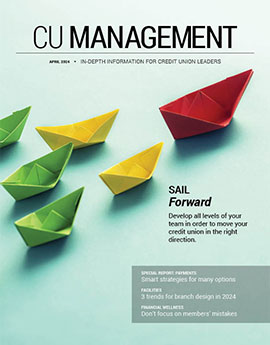5 minutes
Prevent burnout and anxiety by setting expectations and taking these proactive steps before your much-deserved time off.
In mid-August, our family took a 10-day vacation to Nashville, where we stayed on a 200-acre working ranch with horses, a pool and a spotty internet connection. Two years ago, I would have panicked at the thought of not being able to check my work email, but on this trip, I deliberately unplugged from work—no emails or phone calls for eight of the 10 days. This is progress for me. Although I’ve rarely brought “real” work on vacations, up until two years ago, I always checked my email several times a day to make sure I wasn’t missing anything or to answer simple questions. The problem was that I never really disconnected enough to actually enjoy my vacations—there was always an underlying sense of anxiety about what was going on at work.
This all changed when I joined a program for entrepreneurs. It was there that my coach introduced me to the entrepreneurial time system, which included “free days.” Free days are 24-hour periods of complete disconnection from work—no email, no phone calls, no reading any business material. The idea is for you to free your mind and focus on other activities you might enjoy. (For me that includes drinking wine, massages, playing tennis or hiking.) This concept seemed crazy to me at first. What if a potential client emailed me? What if one of my CEO clients had a question? What if people were annoyed they had to wait for me to get back to them?
In February 2018, I tested the concept on an eight-day vacation we planned at a resort in southern Virginia. Day one and two were very challenging for me. I found myself frequently grabbing my phone out of habit, but the only things I could check were my personal email and Facebook. I felt an underlying sense of anxiety as I wondered what I could be missing at work. And then something magical happened. By day three, the anxiety had disappeared. I was actually enjoying our vacation—truly enjoying it—without thinking about work. My husband and I went on a hike and had a great conversation, and I wasn’t constantly distracted by things I couldn’t do anything about.
This trip was a huge learning lesson for me. I realized that by staying connected to my email, I became worried about small things—things that really could wait a week—and it impacted my entire vacation. If a client emailed to ask a simple question, I would think about it all day until I could find a minute to reply. I would begin thinking about all the things I had to do when I got back to the office, instead of being present and enjoying my family.
Preparing to Disconnect
It may seem impossible (or feel irresponsible) to imagine going on vacation and completely disconnecting from work. I’m sure you take pride in doing a great job, being responsive and getting things done. But you are missing out on an opportunity to free your mind of distractions and improve your relationships. After your break, you will return more focused and rested, and with creative and better ideas. Your body and mind will get the rest they need to work at your peak performance.
Our modern culture is so different today than years ago, when you didn’t have a phone in your hand or email and texting at your fingertips. As a society, we have blurred the lines between work and home. So many professionals are feeling burnt out, exhausted and overworked from being constantly connected.
There are a few things you can do to prepare for your trip to reduce your own anxiety, while also addressing or reducing the questions others may have while you are away.
1. Set up auto responses. Before you leave, set up out of office auto responses in your email and voicemail. This sounds simple, but I can’t tell you how many people I email who are on vacation and forget to put their out of the office message on. This causes frustration and delays for your members and your colleagues. Here’s a tip: Even if you are at a conference or away for one day and plan to check your emails, still set up your out of office responder. This way you are setting the expectation that you will not respond—and if you do, the receiver is pleasantly surprised. For example, I recently attended a four-day conference in Denver and set my auto response message saying I was at a conference and would respond when I returned to the office. I responded to urgent messages the same day I received them and saved the others for when I actually returned to work.
2. Provide a contact. Always provide the name and email of someone who can be contacted when you are out of the office (and make sure they are not out of the office too!) When I set up my auto response, I always include my assistant Lisa’s contact information, so clients can have someone to reach out to if they need it. I tell Lisa she can text me if something urgent comes up and she thinks I need to be involved. This rarely happens but will give you and the person emailing you peace of mind in knowing if something is truly important, it will be handled.
3. Tie up loose ends. Make sure you follow through on any commitments or projects before you leave the office. Colleagues will be frustrated if you leave and they don’t have what they need while you are gone.
To really enjoy your unplugged vacation, you need to set expectations. Since I started taking unplugged vacations two years ago, I have not once (that anyone has communicated to me) had an issue where a client or partner was upset because they received an auto response and had to wait. In fact, several people have said it’s inspiring to them that I am able to really disconnect. As long as you set expectations for when you will respond and follow through, it will rarely become an issue. You can be a successful, high-performing leader and still take unplugged time to recharge. In fact, you will become more successful when you do. Personally, I have made more money both years I have taken unplugged vacations compared to years I have not.
Another upside? You will have more time and energy to connect with the special people in your life.
Laurie Maddalena, MBA, CPCC, PHR, is a certified executive coach, leadership consultant and founder of Envision Excellence LLC in the Washington, D.C., area. Her mission is to create exceptional cultures by teaching leaders how to be exceptional. Maddalena facilitates management and executive training programs and team-building sessions and speaks at leadership events. Prior to starting her business, she was an HR executive at a $450 million credit union. Contact her at 240.605.7940 or lmaddalena@envisionexcellence.net.










